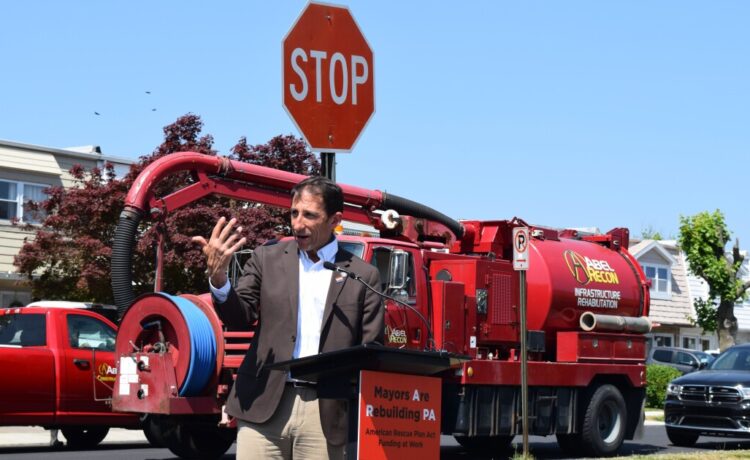ALLENTOWN, Pa. — An Allentown official is recommending city council move money around to cut red tape and remove “arduous” federal restrictions that come with COVID-19 pandemic-relief funding.
Allentown got $57 million from the American Rescue Plan Act, a $1.9 trillion stimulus bill signed into law in March 2021.
The city still has about $2 million in unallocated funds that must be earmarked by the end of 2024, according to Vicky Kistler, city director of community and economic development.
“Anything that cannot be directly connected to COVID is not ARPA-eligible.”
Vicky Kistler, Allentown community and economic development director
That creates a “tight timeline” for city officials to solicit applications from community organizations and determine what to fund, Kistler said.
And the city can only use the pandemic-relief funds for limited purposes, such as replacing lost revenues, stabilizing homes and businesses and improving infrastructure.
“Anything that cannot be directly connected to COVID is not ARPA-eligible,” Kistler told an Allentown City Council committee Wednesday.
‘Lasting effect’
Projects that are funded through ARPA also must abide by monitoring restrictions and meet stringent deadlines.
So Kistler is suggesting Allentown City Council use the $2 million in remaining ARPA funds to fill “a hole” that still remains on the city’s books because of lost revenues.
Council could then use $2 million in general revenues to create a fund to support local projects without federal oversight, she said.
“We want to use this money to have a lasting effect. In order to have a lasting effect, we want to remove anything that possibly impedes good work from being done.”
Vicky Kistler, community and economic development director
“That frees all the restrictions; it allows that revenue to be used in any way,” such as addressing a housing crisis, one of the city’s “pressing issues,” she said.
“We have a very high eviction rate, and our high eviction rate is no longer attributable to COVID,” Kistler said. “I’d love to see us fund more legal representation for people being evicted — I’m not sure that’s ARPA-eligible.”
Programs backed by city funds would have much more “flexibility” to alter plans to align with changes in the market and inflation, she told council members.
“We want to use this money to have a lasting effect,” Kistler said. “In order to have a lasting effect, we want to remove anything that possibly impedes good work from being done.”
Using the remaining ARPA funding to replace lost revenues would ensure the city doesn’t leave any federal pandemic-relief money on the table — or potentially have to pay some back.
Federal regulators clawed back some funding from an Allentown shelter because employees there did not confirm that an individual who stayed — and signed paperwork declaring they needed shelter — was technically homeless, Kistler said.
“That’s how arduous the monitoring became,” she said. “These shelters … were down to one or two or three people left standing. And if they missed a phone call here or there, the entire stay of that person was not funded.”















